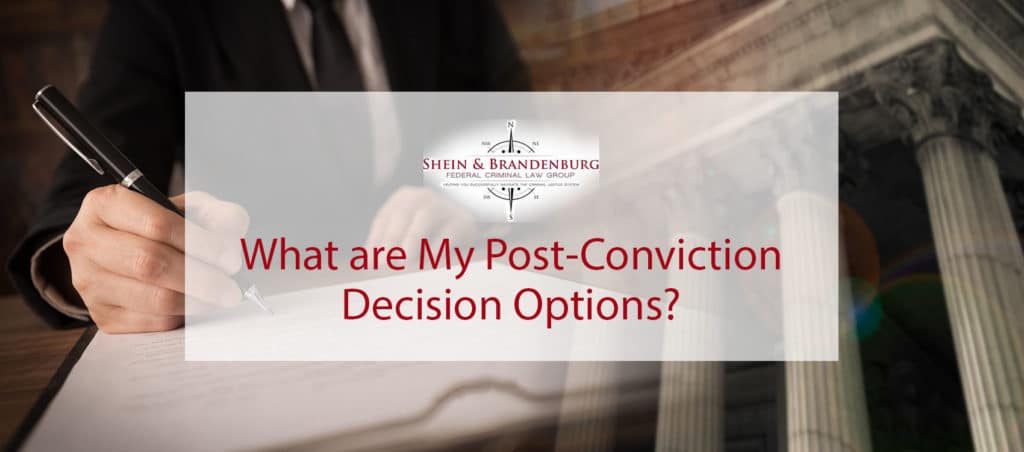Post-Conviction Decision Options
Being convicted of a federal offense is an overwhelming event. Many people are understandably uncertain about how to proceed. In many cases, filing an appeal is one of the first steps to take in responding to the conviction, but it is certainly not a person’s only option. Continue reading to learn what post-conviction decision options you have.
Appellate courts are committed to making sure that laws are appropriately interpreted and can overturn a conviction if necessary. Deciding how to respond after a criminal conviction, however, can be challenging, which is why the assistance of an experienced federal appeal lawyer is often particularly helpful.
Common Options after a Conviction for a Federal Offense
Some of the most common types of options for people who have been convicted of a federal offense include:
- Appeals. A person is able to obtain an appeal when a lower court made an error in deciding the law involved with a case. Some of the most common basis for appeals include incompetent legal representation, Fourth Amendment violations, use of improperly obtained evidence to convict someone, evidence that would exonerate someone being withheld, and sentencing guidelines that are overly harsh.
- Certificate of rehabilitation. In some situations, it is possible to obtain a certificate of rehabilitation stating that a person has been rehabilitated following a conviction. These options are a wise choice for people who are interested in cleaning up a criminal record following a conviction and who have already had the conviction dismissed or expunged.
- Habeas Corpus. These writs are used to bring a convicted person before a court of law to argue that the individual’s detention or imprisonment is not lawful. Like many other motions, a writ of habeas corpus is a complex legal motion, but an experienced federal criminal defense attorney can help a person navigate this situation.
- Pardons. For some people who have been convicted of a federal offense, a federal pardon is sometimes the best available option. Pardons do not mean a person is innocent, but instead, acknowledge that a person now accepts the responsibility of a criminal offense.
- Rule 37. These petitions claim that a trial level attorney was inefficient or made an error that resulted in an error that influenced a person’s conviction.
- Sentence modifications. Available either during a trial or following a conviction, a sentence modification is often only available in a limited number of situations. Some of the reasons why a modification might be possible include errors that were made during sentencing need correction, the person who was convicted is now assisting in providing prosecutors with details about another offense, the person who is charged has a terminal illness that would make him or her unable to serve the sentence, or the sentence does not adhere to guidelines.
Speak with an Experienced Federal Appeal Lawyer
Based on a person’s situation, there are a number of options that are available following after a conviction for a federal offense. Because most of these options have strict guidelines, it is often in your best interest to promptly obtain the assistance of an experienced attorney following a conviction.
Contact the Federal Criminal Law Center today to schedule a free case evaluation.


